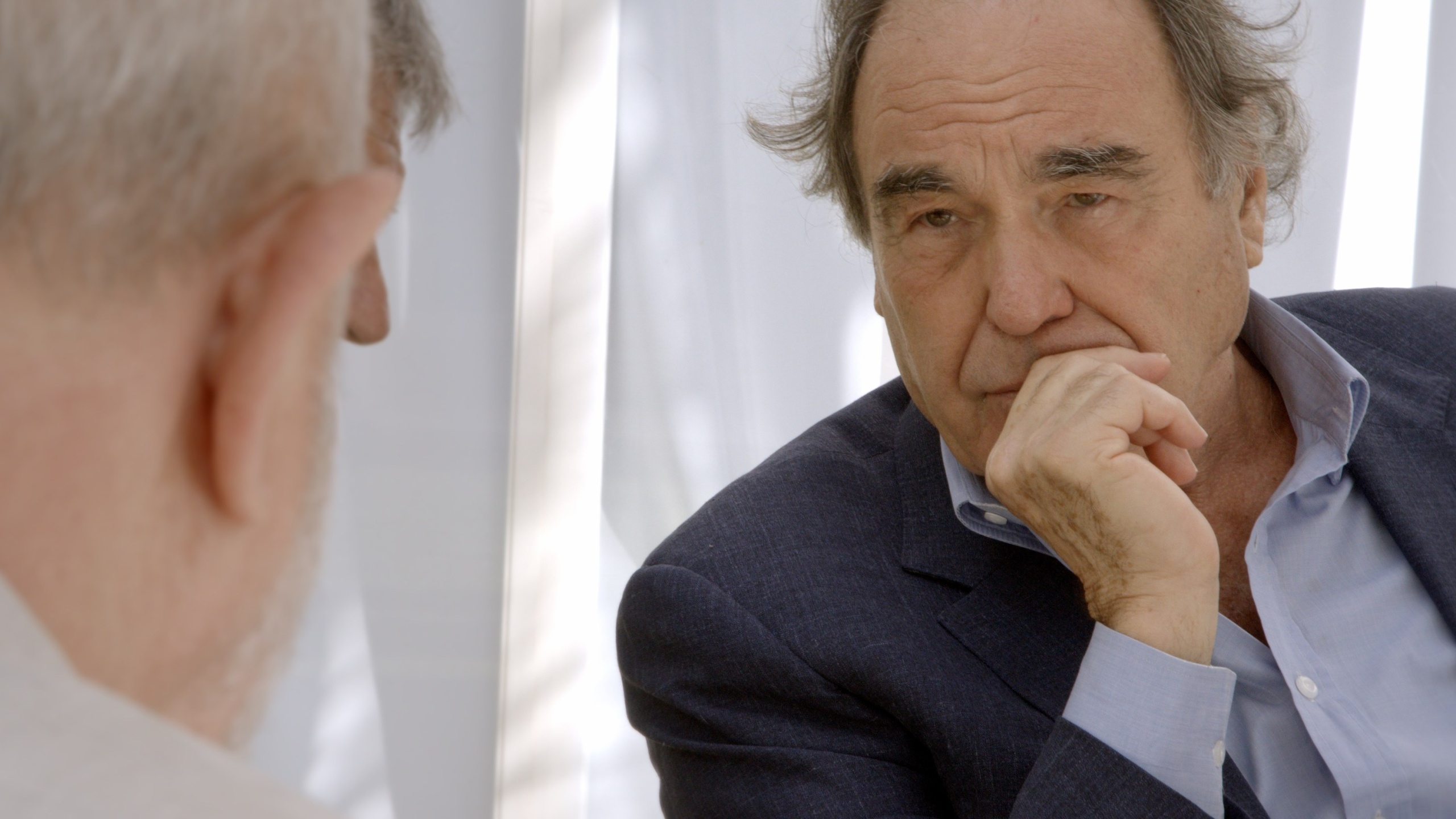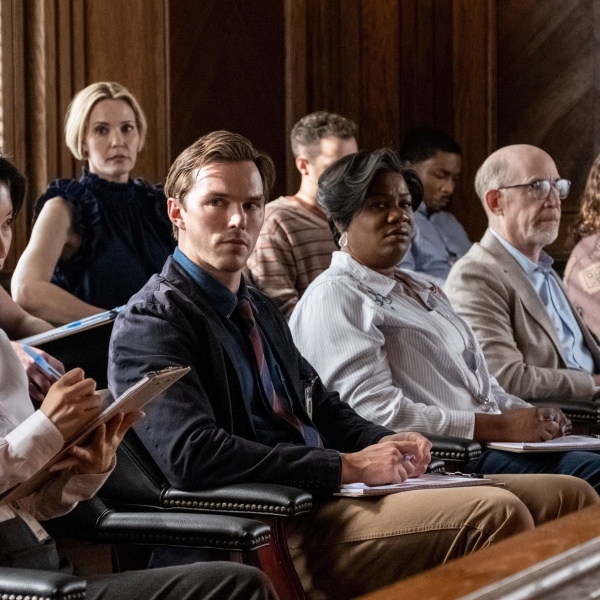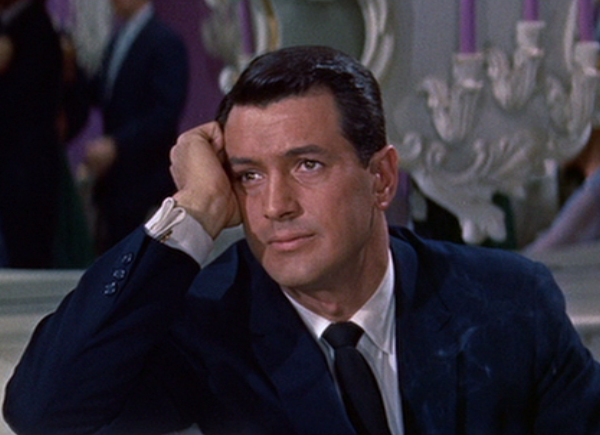Brainy political lightning rod Oliver Stone isn’t making feature films anymore. Sure, he’d love to add a 21st to his 20 films to date; he just can’t find backers. His alternate route, like many other directors today, from fellow Cannes entrant Ron Howard (“Jim Henson: Idea Man”) to Martin Scorsese, is documentaries.
Stone has churned out a career total of ten, including recent 2021 Cannes entry “JFK Revisited” (Showtime) and 2022 eco-doc “Nuclear” (Abramorama). His latest, “Lula,” marks a move to the left from his much-criticized recent portraits of right-wing leaders such as Cuba’s Fidel Castro (HBO’s “Comandante”) and Russia’s Vladimir Putin (Showtime’s four-part “The Putin Interviews“).
Since his start as a filmmaker in the 1970s, the Yale-grad-turned-Vietnam-vet, now 77, has leaned into political fiction, from “Salvador,” “Wall Street,” and “W.,” to Best Director Oscar-winners “Platoon” and “Born on the Fourth of July.” His last Oscar nomination came in 1996, for “Nixon,” after earning three Oscar nominations including Best Picture in 1992 for controversial global smash “JFK.”
More informed than most, historian Stone’s complex global viewpoint is more nuanced than the current polarized American political landscape will tolerate. He has alienated folks on every side of the political debate. He has been criticized for promoting violence with “Natural Born Killers,” celebrating a whistleblower in “Snowden,” and conducting affable documentary interviews with Castro and Putin. “My main causes are America and keeping peace in the world,” said Stone at the Hotel du Cap outside Cannes. “And America plays a fundamental role there. And unfortunately, we’ve been bad boys.”
Now he’s taking a walk on the Left side with “Lula,” co-directed with frequent collaborator Rob Wilson, a friendly portrait of Brazil’s working-class hero president Lula da Silva, who never finished school, learned to read at ten, built a labor movement, commanded an 83 percent approval rating when he left office in 2011, and then was thrown in jail on a trumped up charge by the right-leaning courts, abetted by the corporate-owned right-wing media, opening up a path for controversial right-wing Jair Bolsonaro to win the office of president.

Stone got help from Brazilian Oscar-nominated filmmaker Petra Costa, whose 2019 “Edge of Democracy” covered the way the right wing took over the elections in Brazil. “Her film is definitely worth seeing and we’re not trying to go into that depth because her film is directed at her country,” he said. “This one is directed more at the rest of the world. I wouldn’t say news is being broken, but the story is unknown to the U.S..”
Stone again is in the Cannes Official Selection hoping to make a sale in a challenging market for non-fiction fare. Showtime is no more. “Like Francis [Coppola], we’re out there,” said Stone. “I saw him. He’s quite ballsy. And it’s his own money.”
He also relies on reporting from controversial journalist Glenn Greenwald, who helped to break the Edward Snowden NSA whistleblower scandal. “Glenn Greenwald is the Donald Sutherland figure from ‘JFK’ in this movie,” said Stone, “who’s giving all of the background to the audience in a quick and concise manner.”
When Stone went on a South American tour, he interviewed seven leftist presidents for documentary “South of the Border” (2009), including Lula during his first term in office. “Lula is a beautiful, extraordinary story,” said Stone. “It’s just to give credit to a man who has been around a long time. It’s a movie, if you think about it: working class hero emerges out of nowhere. He’s got no education. I don’t think he even learned how to read until he was about ten. It’s from the bootstraps up and dire poverty. He worked his way up to the trade union ladder. And he got into union leadership, which is unbelievable, because the Workers Party was not a big deal back then. And he made the Workers Party over time, into one of the leading power centers in Brazil, which, given how the [country] was stacked against lower classes, is an amazing story. As if Eugene Debs became president of the United States.”
More viewers in the U.S. would likely recognize the flamboyant Bolsonaro, who is constantly in the news, more than Lula. “I didn’t realize until looking at all the news reports recently,” said Stone, “how blunt Bolsonaro has been about calling for a coup everywhere.”

What got Bolsonaro into office after Brazil’s most popular president ever was lawfare. “[Lula] leaves office in 2011 with an approval rating of 83 percent,” said Stone. “How often do you get that when you’re a president of any country? It goes to show that there was a huge, almost unanimous approval of him after eight years, where all the media is controlled by rich people. And they’re definitely to the right over there in South America. He goes, they vote for his favorite candidate, Dilma Rousseff, who’s an important, extraordinary woman. She turns and becomes president and in her second term, they start to revolt. The right wing begins to activate strongly. And they impeached her on the basis of bookkeeping bullshit. So they got rid of her very happily. And then they came for Lula.”
The former president is tried and convicted on trumped up charges — that were completely unsubstantiated — by the politically motivated court. Stone starts filming after Lula comes out of the jail after 19 months. “Lawfare is a way to get rid of somebody who’s legitimate by the media and the judiciary,” said Stone. “And they have an independent judiciary in Brazil.”
The question is whether this could happen in the United States. “This guy Bolsonaro came along,” said Stone. “And he was in Congress since the early ’90s. And he’s been calling for a coup since the early ’90s. You can do that in Brazil. In America, they would throw you in jail. You’re not allowed [by law] to call for the overthrow of a government. Trump didn’t cross that line. He never said that. He may have implied it. But no, he was careful about that. Trump keeps saying, ‘I’m a Democrat. People will put me in if you just let me fucking get a little election.’ So there’s similarities to Brazil, for sure. Because look how close Bolsonaro came once Lula got to jail.”
The nailbiter scene in the movie is the 2022 election, as Bolsonaro and Lula watch the numbers come in over a long, long night. “The mentality in Brazil is that we need law and order,” said Stone. “Law and order is a big deal. People get that it’s a stock phrase, think of Nixon: ‘Law and order, law and order.’ It seems to work. It registers with the poor, it registers with the rich, it registers with the middle class especially. And that’s what Bolsonaro has been saying all along: ‘We need a cleaning out of the government, we need to have military people running the show. They know what they’re doing.’”

The vote among the Brazilians was close. In the end, Lula wins. “In this whole thing, Lula has been very cool,” said Stone. “And let this thing play out. But Lula is interested in a bigger picture of running the country and making it work. So that the people’s party, the Workers Party will stay in power, or at least be close to the levers of power.”
One reason Lula stayed in power so long was that the economy was flourishing. “So even the people that wouldn’t support him later, were supporting him then because they benefited. Lula is instructive for audiences in the US. It’s good to know that a person can get elected, serve two terms, deliver for people and leave office.”
President Biden is doing measurably well in terms of the economy and helping people get the things that they need to lead a decent life. But his approval rating remains low, at 38 percent, because of the right wing media’s dominant alternate narratives. Stone is a Democrat who voted twice for Barack Obama, but disapproves of Biden’s stance on Ukraine. “I don’t like Trump,” he said. “Maybe I like Kennedy. You have to allow for that choice. Because I don’t read the media religiously. I do not buy their line. America’s on a road to war, and I don’t think it’s a good one. Just today we raised the number of our commitment to Ukraine, so we have to be careful. This is how you get to a War World War I situation. I’ve been a fan of peace.”
Next up: Stone has been writing a second book, the follow up to “Chasing the Light,” “which is a bitch,” he said. “The whole thing has been hard to do; 40 years telling a long story short.”
Stone’s long-gestating memoir film “White Lies” is not getting made: “It doesn’t deserve the fate it would get in studio hands. I am pursuing something. I’ve one more. Fernando Sulichin is producing it. And Rob [Wilson] is involved. But I’m old. I’m not as independently wealthy as Francis. Like everybody else, I’m subject to market conditions and actors. Getting the right elements together and the budget and by God, by the time you make a movie, you’re dead. Even when you start, you’re dead, right?”





